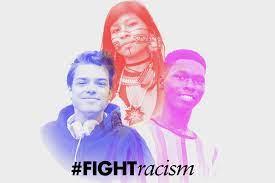
https://www.ohchr.org/EN/NewsEvents/Pages/DDPA.aspx
“The Durban Declaration and Programme of Action (DDPA) rightly underlines the important role of young people in fighting racial discrimination,” she said. “It calls for active participation by youth in devising strategies to fight racial discrimination. And it urges States to scale up human rights education, including anti-discrimination and anti-racism information to teach young people and children about their right to live in dignity, equality and mutual respect.”
Bachelet’s comment was part of a panel discussion reflecting on contemporary challenges facing young people in South Africa and worldwide and how they can be agents of change. The discussion was set against the backdrop of commemorating the 20th anniversary of the third World Conference Against Racism (WCAR) that led to the development of the DDPA as well as the 45th anniversary of the Soweto Youth uprising against apartheid and the 25th anniversary of the Constitution of South Africa.
The DDPA placed contemporary racial discrimination in its historical context, highlighting the ongoing discriminatory legacies of transatlantic slavery and European colonialism, said E. Tendayi Achiume, UN Special Rapporteur on Contemporary Forms of Racism, Racial Discrimination, Xenophobia and Related Intolerance. It also articulated inequality and discrimination broadly, condemning discrimination based on race, ethnicity, indigeneity, and migrant or refugee status. In addition, the DDPA made clear that young people were crucial to eliminating racial discrimination, xenophobia and related intolerances, a belief that is still true today, Achiume said.
“There can be no meaningful social change without the participation and drive of youth,” she said. “Profound change requires fearlessness and energy, a willingness to challenge the status quo, and perhaps most of all the creativity to reimagine our societies—who we are and how we relate to each other. This creativity, this energy, this courage are especially prevalent among youth, and honestly I think this terrifies the older generations that typically hold power.”
The discussion, which took place online from South Africa, was also a chance to reflect on the kind of progress or lack thereof in relation to the creating the kinds of conditions for young people to thrive, said Naledi Pandor, Minister of International Relations and Cooperation. Young people are among the hardest hit by the pandemic – with many having lost jobs, parents, guardians and other caregivers because of it.
“But we cannot lose hope,” she said. “Young people can and must be in the forefront in the fight against racism, poverty, ignorance, marginalization, exclusion, and disease.”
It is not fair to ask young people to fight these fights, when they are battling every day to survive, said Malaika Mahlatsi, a writer, political commentator and essayist. Mahlatsi is one of the “born frees” – South African youth who are growing up without apartheid. She said the youth unemployment rate in South Africa was 20 percent.
“How can we demand that young people participate in dismantling structures, when they are home unemployed?” she said. “It is a tall order to put on young people.”
“At the heart of the issue…is why we are having this (same) conversation 20 years later (about racism and discrimination),” she added. “Why, it is because we are not having honest conversations about racism. For me as a young person to meaningfully combat racism, it is going to be necessary to create equitable economy that is inclusive and grounded in human rights…This will change very little if there is no political will to change the government structures that allow racism and discrimination.”
The last decade has seen a great deal of mobilization for equality and justice. Young people have led many of these movements. These include movements to decolonize universities and abolish economic barriers to tertiary education in South Africa, and transnational Black Lives Matter movement catalysed by the murder of George Floyd.
2021 is a watershed moment in the fight against global racism, said Abigail Noko, head of the UN Human Rights Regional Office for Southern Africa. While there are still challenges facing the task of dismantling racism. In the two decades since first WCAR:
- 42 Member States have adopted or amended legislation prohibiting racial discrimination
- 35 Member States have established equality bodies for combating racial discrimination and promoting equality;
- 23 Member States and regional institutions have adopted national and regional policies against racism.
- 26 more States have ratified the International Convention on the Elimination of all forms of Racial Discrimination, bringing the total to 182 States that are party to the Convention
“The DDPA has global recognition, acceptance and is an instrument for catalytic transformative change,” Noko said. “Just as racism, racial discrimination, xenophobia and related intolerance was an issue of global significance in 2001, it still is today and young people can use the DDPA to build solidarity, lead change and stand up against racism. We need the voices and actions of young people to break through the silence that locks in discrimination and oppression.”
Moreover, said Minister Pandor, governments need to be right alongside them, providing the infrastructure to help them achieve their dreams.
“As governments, we should create conditions that will allow young people to realise their basic giftedness; to utilise their potential; to harness their energies; to release their creativity; to dream the seemingly impossible; and to succeed big,” she said.
6 August 2021










Add new comment